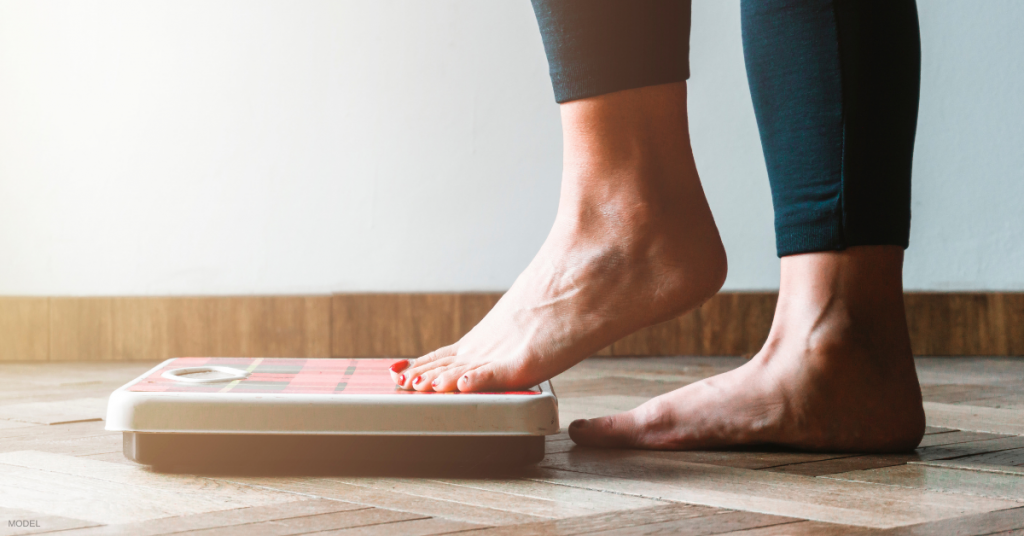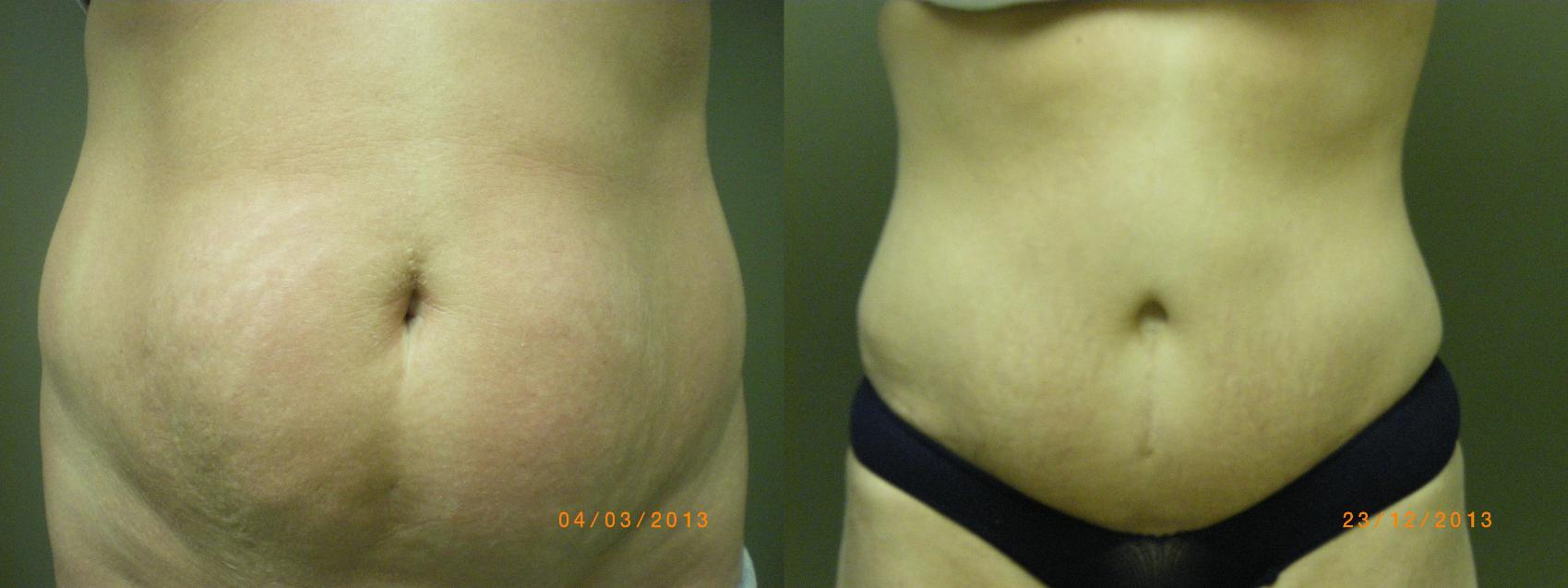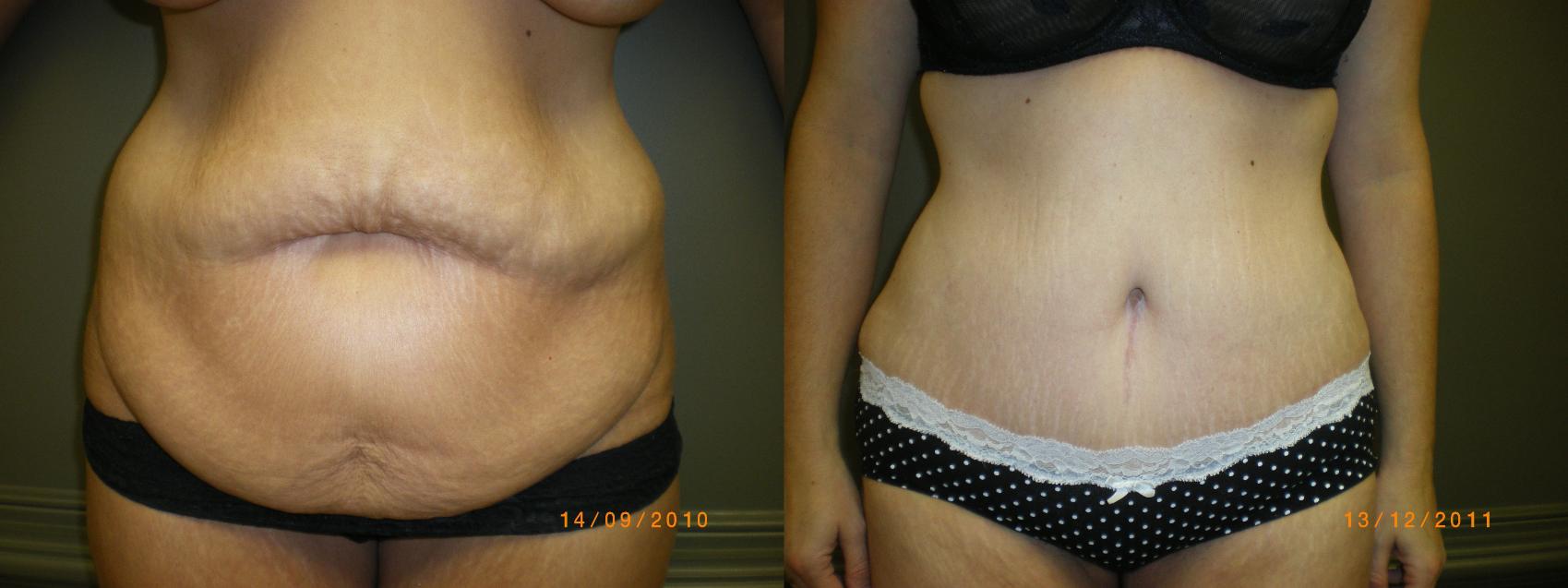Tummy tuck surgery is a transformative procedure that sculpts and tones the midsection. It is often used after pregnancy or significant weight loss to get rid of loose skin and unwanted fat. However, many patients worry about weight gain after their tummy tuck, fearing it will ruin their hard-earned results. It’s true that putting on pounds can change your new look—but there are ways to prevent this from happening.
All humans have natural weight fluctuations, but it’s useful to know the connection between weight gain and tummy tuck surgery. In this post, we offer a few helpful tips for managing your weight after surgery and explain what happens if you do gain weight post-surgery.
Are You More or Less Likely To Gain Weight After a Tummy Tuck?
Whether or not you maintain your weight after your tummy tuck surgery depends on many factors. It’s easy to believe that you’ll be so excited about your results that you’ll become a fitness fanatic and get into and maintain the best shape of your life. But it’s also possible for some of us to envision getting complacent with our new, flatter abs. Here are some things to consider:
| Reasons One Might Gain Weight | Reasons One Might Not Gain Weight |
|---|---|
| Sense of Security: Belief that the weight won’t visibly return due to the removal of excess fat and skin. | Increased Motivation: Desire to maintain the results of a flatter, firmer abdomen. |
| Lifestyle Reversion: Gradual return to unhealthy eating or sedentary habits after recovery. | Improved Confidence: Feeling more confident and motivated to pursue a healthier lifestyle. |
| Emotional Factors: Stress, emotional eating, or underlying psychological factors that lead to weight gain. | Surgical Investment: Wanting to protect the financial and emotional investment in the surgery. |
| Medical Conditions: Hormonal imbalances or medical conditions affecting weight regulation (e.g., hypothyroidism). | Increased Awareness: Greater focus on nutrition and fitness due to a renewed sense of health and well-being. |
| Pregnancy: Post-surgery pregnancies can lead to significant weight gain. | Post-Surgical Education: Advice from the surgeon about weight maintenance encourages proactive health behaviors. |
| Misconceptions About Surgery: Belief that a tummy tuck is a “permanent fix” rather than a complement to a healthy lifestyle. | Accountability: Regular follow-ups with the surgeon or healthcare team reinforcing healthy habits. |
Tackling the Causes of Weight Gain
We all want to believe we’ll be in that right hand column, but unfortunately, life happens and sometimes weight gain does, too. By understanding how weight gain happens in the first place, you can do a better job of avoiding these pitfalls.
Lifestyle
The most common culprit of unwanted weight gain is simply unhealthy lifestyle choices. Eating processed, high-calorie foods while living a sedentary lifestyle can cause you to gain weight quickly. If you want to maintain a slim, lean figure, there’s no replacement for a balanced diet and regular exercise. No matter how many plastic surgery procedures you decide to undergo, establishing healthy habits is the best way to look and feel your best. Some tips:
- Surround yourself with people who will support you and join you in your healthy habits
- Use technology like nutrition and fitness tracking apps or step counters to help you stay accountable
- If your job requires you to sit, try to take short walking breaks every 1 or 2 hours
Hormones
Your hormone levels fluctuate throughout the course of your life, starting in puberty. They can also change depending on a variety of factors including:
- Diet
- Genetics
- Illness
- Age
- Medications
If your hormones are unbalanced, your body may gain weight at a dramatic rate. If exercise and healthy eating aren’t enough to correct the problem, try talking to a doctor to see if you can be tested for a hormonal condition.
Stress
Stress puts pressure on nearly every part of your body and nervous system. It often causes people to eat more and sleep less—two things that contribute to weight gain. Stress can also cause hormonal issues like the ones mentioned above. If you’re going through a tough patch, try activities such as exercise, meditation, or journaling to help put your system back in alignment.
What Happens If You Gain Weight After a Tummy Tuck?
Gaining a handful of pounds after your procedure won’t compromise your final tummy tuck results. You can usually fluctuate within 10 to 15 pounds of your goal weight without any significant issues. However, weight gain over the 15-pound mark can cause skin and abdominal muscles to slowly stretch out of place. This can create a belly bulge and impact the elasticity of your skin.
In severe cases, you may need tummy tuck revision if you are unable to lose the new weight. Revision surgery is typically more complicated than the initial procedure, so try to avoid this last-chance solution. Instead, we encourage our patients to lead healthy, active lifestyles after surgery and avoid any major lifestyle changes.
Gaining weight after a tummy tuck isn’t ideal, but there are plenty of ways to correct course and maintain your results. Request a consultation if you would like to learn more about your tummy tuck surgery options from experienced cosmetic surgeons in the Atlanta area.







Leave a Reply